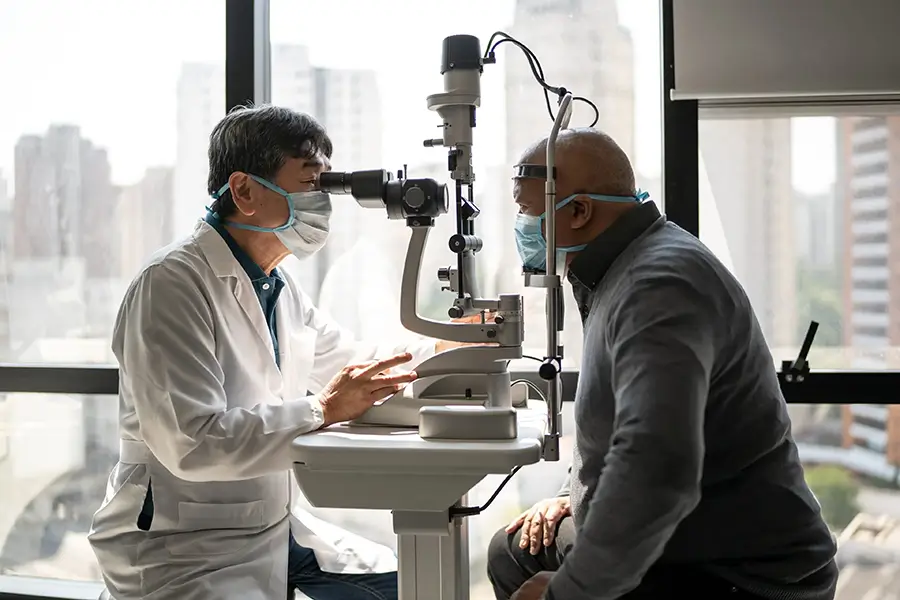Home » Do I Need an Eye Exam if My Vision is Fine?
It’s a question many ask: “If my vision seems fine, do I need an eye exam?” The short answer is yes. While clear sight is undoubtedly a positive sign, it’s just one facet of overall eye health. Regular eye exams are crucial to maintain optimal eye health and detect potential problems early on. Here are 10 reasons you should schedule an eye exam, even if you believe your vision is in tip-top shape.

Eye exams provide comprehensive evaluations of your eye health and visual system. The optometrist doesn’t just check if you can read the letters on the chart; they assess the eye’s structure and function, ensuring everything is operating as it should.
Many eye diseases like glaucoma, macular degeneration, and diabetic retinopathy have no early symptoms. Regular check-ups can detect these conditions in their initial stages when they are more treatable, possibly preventing vision loss.
Our eyes can change over time, and what was once a perfect prescription might no longer be suitable. Ensuring you have the right prescription will prevent eye strain, and headaches, and ensure you’re seeing the world as crisply as possible.
You might be surprised to learn that an eye exam can reveal signs of diseases unrelated to the eyes. Conditions like diabetes, high blood pressure, and even some tumors might be identified during a thorough eye exam.
In our digital age, many suffer from digital eye strain due to prolonged screen time. If you’re experiencing dry eyes, headaches, or blurred vision after computer work, an eye exam can provide solutions like specialized lenses or vision therapy.
Children might not always recognize or articulate vision problems. Regular eye exams ensure their visual system is developing correctly, which is crucial as 80% of learning occurs visually. Early detection of issues can lead to more effective treatments and prevent academic and developmental setbacks.
Both eyes need to work in harmony for clear, comfortable vision. An eye exam tests the coordination between the eyes. Issues like binocular vision dysfunction, where eyes don’t align perfectly, can cause symptoms like dizziness, headaches, and reading difficulties.
Extended exposure to the sun’s ultraviolet rays can cause cataracts and macular degeneration. A routine exam can detect early signs of damage, and your optometrist can recommend protective measures like UV-blocking sunglasses.
Your side vision, or peripheral vision, is vital for daily activities and can be affected by glaucoma. Regular exams test the complete field of vision, ensuring you detect any problems on the sides, even if your central vision is clear.
Knowing that your eyes are healthy and that you’re doing all you can to protect one of your most vital senses gives you peace of mind. Regular check-ups allow you to be proactive about your health, rather than reactive.
At Tennessee Eye Care, we’re passionate about ensuring the eye health of our community. Whether you’re experiencing vision problems or not, we’re here to provide comprehensive care for all your optical needs. Schedule an appointment today, and give your eyes the attention they deserve.